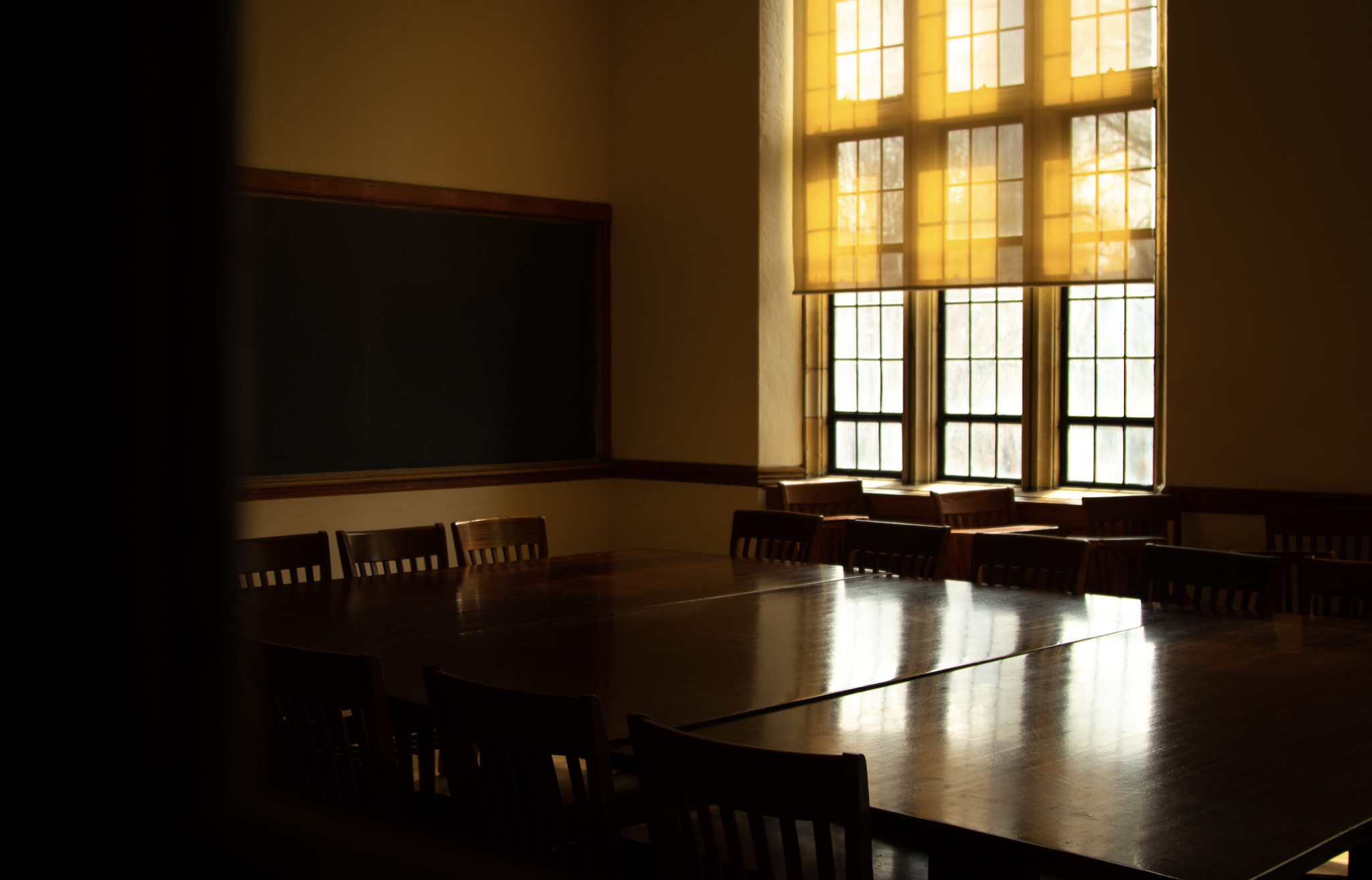
Marisa Peryer, Senior Photgrapher
While Associate Research Scientist Man-Ki Yoon plans to transition to in-person teaching in March, for now, virtual machines running car simulators hooked to the computers in the computer’s usual lab on Hillhouse have provided a pandemic-friendly substitute to his hands-on course on self driving cars.
Just shy of a year since classes first went online last March, 54 classes this semester were approved to be taught, at least in part, in person. Of those approved, around half are STEM courses and labs, 15 fall into the humanities and social sciences and 10 are visual and performing arts courses.
The News reached out to 11 professors about their plans for in-person instruction, six of whom responded. None are currently teaching their classes in person and only two — Yoon and Edward Wittenstein, lecturer at the Jackson Institute for Global Affairs — indicated confidence that their classes would ultimately transition to in-person learning.
Wittenstein’s course, Cybersecurity, Cyberwar and International Relations, will have an in-person option starting on Wednesday, Feb. 17.
“It is a much larger classroom than normal, with everyone socially distanced, wearing masks, and closely following all Yale health procedures—plus a lot of wires, microphones, video cameras, and screens,” Wittenstein wrote in an email to the News. “However, these necessary inconveniences are a small price to pay given our desire for in-person interaction, to the extent circumstances permit.”
In a follow-up email, Wittenstein added that he is tested twice a week and expects “rigorous adherence to all health protocols” from students who decide to attend his class in person. He also thanked Yale’s maintenance and custodial staff for their “tireless efforts” during the pandemic.
Charles Musser, professor of American Studies and Director of Undergraduate Studies in Political Science David Simon are both waiting for public health conditions to improve before teaching their respective classes in person. Musser cited that he would receive the COVID-19 vaccine soon and Simon cited a potential downgrade of Yale’s alert level as potential signs to move to in-person teaching.
“Will it happen?” Musser wrote in an email to the News, “Who knows. Many of the students taking the class are not even in residence. Obviously it is a frustrating situation for all of us but we are finding ways to deal with it.”
Director of Undergraduate Studies of Anthropology William Honeychurch, who was planning to hold his undergraduate course in person after a successful in-person graduate seminar last semester, ultimately decided not to after the appearance of the new COVID-19 variants.
Although Honeychurch does not feel as though students are able to fully experience his course virtually, he called the decision “the best practice given the situation.”
“It is simply wiser not to do this,” Honeychurch added.
While Mechatronics Laboratory is listed as a hybrid course, Tyler Imprescia ’22 added that it is currently set to remain remote.
“We’ll be receiving a box with everything we need to do all of the labs and the final project from wherever we’re learning,” Imprescia said. “I’m sure it would have been a better experience in person, but I’m really glad we still get to apply the theory we’re learning to a physical product.”
The classes that will meet in person beginning in the third phase of the spring arrival quarantine have also needed to reimagine what a COVID-19-safe collaborative space may look — or sound — like.
Stoeckel Hall, where the School of Music is housed, debuted a no-latency audio system between studio practicing rooms in the fall, so that musicians in one room could hook up to an audio system that would allow them to listen, in real time, to musicians in another room in the building.
For instance, to run a small ensemble class, instrumentalists could sit distanced from each other in one room, while a vocalist might join from another.
Despite logistical hurdles, the new space may help train students to play together more attentively.
“You can be together without seeing each other,” Dani Zanuttini-Frank ’22 said. “Listening is where the information is. Have faith in your ears.”
Brian Isaacs ’22, who is taking a class called Musical Acoustics and Instrument Design that is cross listed in both the music and engineering and applied science departments, said that the Center for Engineering Innovation and Design will be reserved for their class during its lab times. While the class would theoretically be able to accommodate for remote lab work, all nine of his classmates are enrolled in New Haven and plan to attend the in-person classes.
“The ultimate goal of the course is the final project: building a novel musical instrument or application,” Isaacs wrote in an email to the News. “The course seemed like a great way to get reacquainted with my quantitative past and to complement my musical training as a violist.”
Bradley Nowacek ’23, a theater and performance studies major currently residing on campus, will be attending a weekly theater performance class in person starting this Thursday.
Nowacek noted that the class will need to be adjusted to accommodate both students learning in person and remotely. But despite reservations about performing theater in masks, Nowacek still maintained that he appreciated gaining a “regular, dependable source of in-person contact” through the course.
“Of all the times to take this course, this is probably the worst, but having a course like this is really valuable to add into my schedule at this specific moment,” Nowacek said.
Currently, Yale University is at an orange, or moderate risk, alert level.
Madison Hahamy | madison.hahamy@yale.edu
Emily Tian | emily.tian@yale.edu







